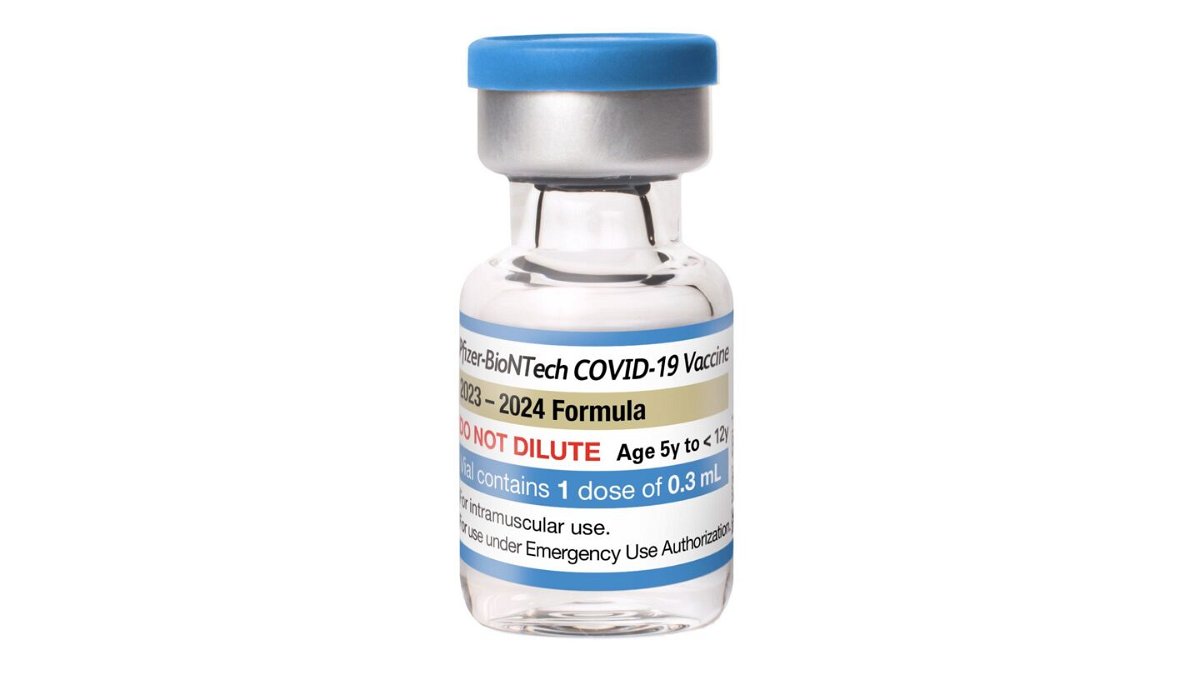When to get the new COVID-19 vaccine to maximize your protection

By Deidre McPhillips, CNN
(CNN) — A new COVID-19 vaccine is available — and recommended — for everyone ages 6 months and older, and experts say it’s best to take advantage of the protection it provides sooner rather than later.
The shot — greenlit by the US Food and Drug Administration and the US Centers for Disease Control and Prevention this week — is different than previous versions, with a formulation that’s been updated to target newer variants of the virus that are currently circulating.
Those variants and their offshoots are already driving a wave of COVID-19 transmission, with weekly hospitalizations nearly triple what they were two months ago and continuing to rise.
“The earlier you get it, the more similar it’ll be to the current circulating strains and the more immediate protection you get,” said Justin Lessler, an epidemiologist at the University of North Carolina Gillings School of Global Public Health.
Lessler helps lead the COVID-19 Scenario Modeling Hub, which collects data from several teams to create long-term forecasts for COVID-19 trends.
The latest forecasts suggest that weekly hospitalization rates will continue to rise, most likely to double what they are now by the season’s peak in December. But, he said, rates are rising sooner and faster than anticipated and recent trends more closely track with scenarios where the virus has high immune escape, making people more susceptible to infection and reinfection.
The US does not have one dominant variant in circulation right now, but the EG.5 lineage is most prevalent, accounting for more than a fifth of cases. While these variants don’t seem to be causing different or more severe symptoms than the viruses that came before them, EG.5 does appear to have more immune escape, experts say.
“There’s immune waning, but the virus is also evolving,” Lessler said. “It’s clear that things are starting to go up already. So, I don’t think there’s any sensible gaming of the timing (of getting the shot) when the risk is already there.”
The vaccine can make a “substantial difference” in the trajectory of severe outcomes, he said. The models suggest that strong uptake could save tens of thousands of lives and prevent hundreds of thousands of hospitalizations.
But the vast majority of people in the US have weathered this summer’s surge thus far with no vaccine-induced protection, making the new shots that much more important to minimize the risk for severe disease heading into respiratory virus season.
Only about 1 in 6 people in the US got the updated bivalent booster, and most people who did get that shot were last vaccinated when it first became available a year ago.
Now, amid the recent surge, many people may have some natural immunity from a recent infection and could consider waiting to get the shot to extend their protection even longer.
Those who got their last COVID-19 vaccine several months or longer ago should get it as soon as possible. But people who recently received the bivalent COVID-19 vaccine or who were recently infected with the virus itself can wait a bit longer — depending on individual risk, experts say.
“The official recommendations are to wait two months after your last booster and three months after a recent COVID infection before getting the new vaccine,” Dr. Jeffrey Duchin, public health officer for Seattle and King County and professor at the University of Washington said at a news briefing held by the Infectious Diseases Society of America on Wednesday.
But “there are multiple factors that people can weigh in determining the precise timing of when they get vaccinated,” he said.
People who take precautions to minimize their individual risk or who have a high risk tolerance might delay vaccination after a recent infection, he said. But individuals who are often in high-risk settings or who are at high risk for severe outcomes may want to shorten that waiting period.
Life can evolve as quickly as the virus, and experts encourage scheduling an appointment to get the vaccine as soon as possible before unexpected barriers have the chance to delay or completely prevent it.
“Your exposure to the virus does not depend on when you schedule your vaccine,” said Dr. Tochi Iroku-Malize, a family physician in New York and president of the American Academy of Family Physicians. “The virus is not waiting for you to go get your vaccine. So get the vaccine now, as soon as you’re able.”
CNN’s Brenda Goodman and Amanda Musa contributed to this report
The-CNN-Wire
™ & © 2023 Cable News Network, Inc., a Warner Bros. Discovery Company. All rights reserved.